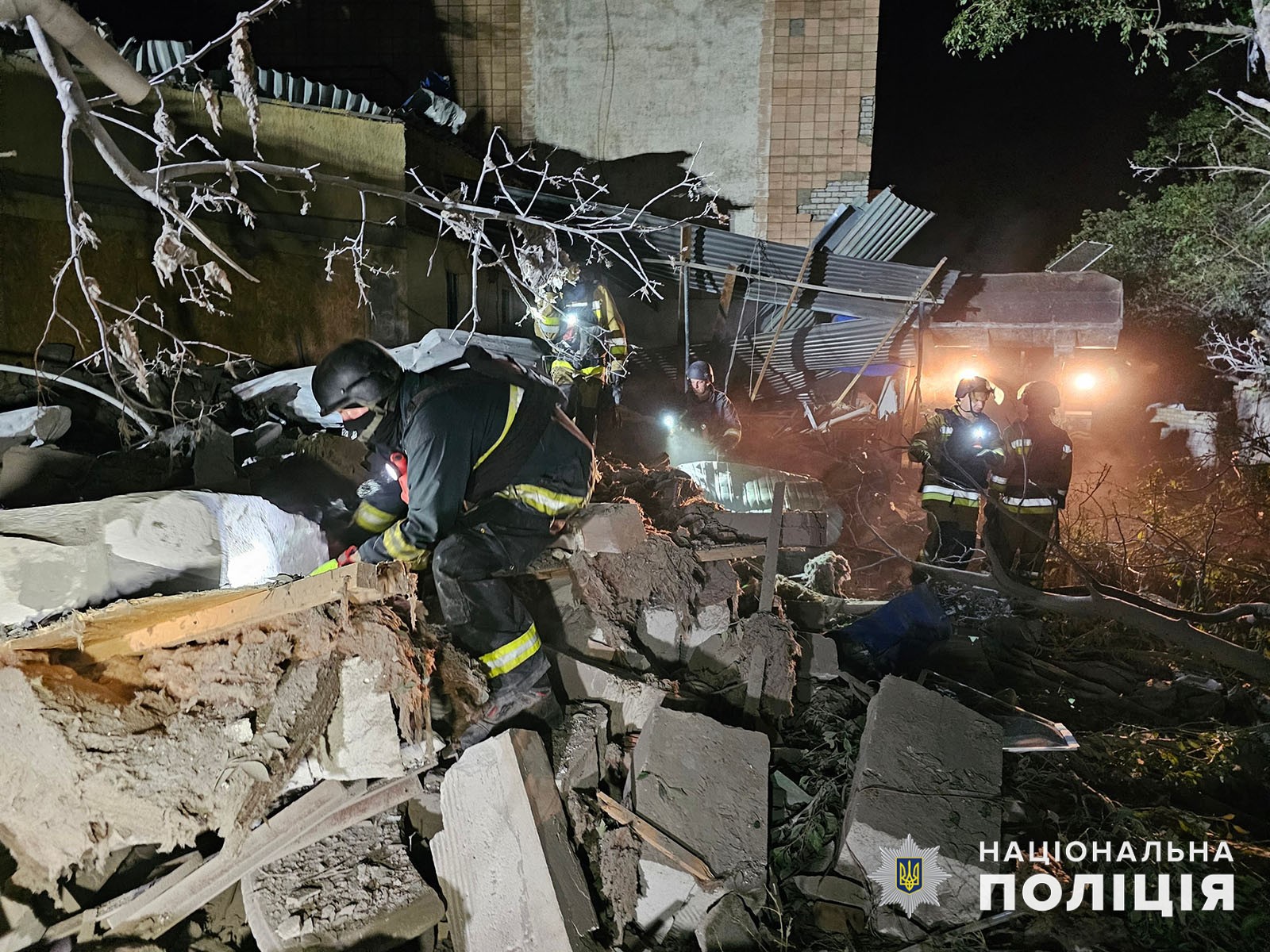Truth Hounds studies Russian strikes on hotels in Ukraine and their impact on reporting
Ukrainian NGO Truth Hounds has released a study titled “The Last Check-In: Russian Strikes on Hotels in Ukraine and How They Affect Reporting”. Institute of Mass Information (IMI) director Oksana Romaniuk and IMI media expert Hanna Chabarai provided consultations for the study.
In addition to examining the impact of the attacks on the work of the media, the organization studied how Russian officials, media outlets, and Telegram channels tried to legitimize the hotel strikes in the public discourse and analyzed whether these strikes violate international humanitarian law, Truth Hounds reports on Facebook.

The aftermath of the Russian strike on a Kramatorsk hotel (Donetsk oblast). Photo by the National Police
“These strikes have made the logistics of reporting in Ukraine significantly more complicated: travel has become more dangerous, difficult, and expensive. Media professionals who previously used to stay in Ukrainian hotels on a regular basis now face increased risks – as do civilians who live, work, or simply happen to be nearby during the strike,” Truth Hounds writes.
The researchers note that by creating obstacles to reporting on the ground and putting the lives of those trying to cover the course of the war at risk, Russia is strengthening its control over what information reaches the media.
The study also emphasizes that hotels in frontline cities play an important role in supporting the uninterrupted work of journalists: they offer power supply, stable internet connection, access to bomb shelters, and generally safer conditions for working on news stories. That is why not just media workers, but also volunteers, sappers, humanitarian mission representatives and internally displaced persons often choose to stay in hotels.
The presence of servicemembers in such hotels is sporadic and does not suggest that a hotel is being used as a military facility, the researchers say. Soldiers may book a hotel for a short vacation or a meeting with their family – in situations close to ordinary civilian occasions.
Truth Hounds stress that targeted strikes on hotels of military significance may constitute a breach of international humanitarian law and help remove independent media from hot spots. Hotel strikes force journalists to change their routes, limit their time on site, or even cancel trips to certain regions.
The researchers also draw a parallel between current situation and past military precedents. For example, in 1999, Yugoslavia Hotel in Belgrade was targeted during a NATO operation under the pretext that a military leader was staying there. However, witnesses confirmed that it was civilians living and working there.
A key case analyzed in the study was the strike on Reikartz Hotel in Zaporizhia on August 10, 2023. The strike killed one person and injured 19 others, including media professionals and humanitarian workers. At the time, the hotel was occupied both by journalists reporting from the frontline region and by civilians, including internally displaced persons.
Truth Hounds notes that no credible evidence of Reikartz Hotel being used for military purposes has been revealed despite claims by Russian officials and propaganda channels on Telegram. This gives grounds to consider the strikes as a potential violation of international humanitarian law, such as the principle of distinguishing between civilian targets from military ones.
The Russian strike on Sapphire Hotel in Kramatorsk on Agust 24, 2024
The Russian missile strike on the Sapphire Hotel in Kramatorsk on August 24, 2024 killed Ryan Evans, a safety advisor with the British news agency Reuters. Other two members of the Reuters team were injured and hospitalized. Reuters cameraman Ivan Lyubysh-Kirdey was severely wounded. The National Police notes that Russia struck the hotel where a crew of foreign reporters was staying with an Iskander-M missile.
The international watchdog Reporters Without Borders (RSF) condemns the Russian attack and called for a thorough investigation to identify the culprits and prosecute them.
Donetsk Oblast Prosecutor's spokesperson Anastasia Medvedeva has said that Russian troops may have targeted the hotel deliberately.
Help us be even more cool!

